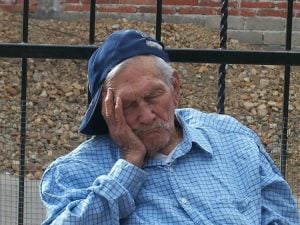Researchers at Duke-NUS Graduate Medical School Singapore (Duke-NUS) have found evidence that the less older adults sleep, the faster their brains age. These findings, relevant in the context of Singapore’s rapidly ageing society, pave the way for future work on sleep loss and its contribution to cognitive decline, including dementia.
Past research has examined the impact of sleep duration on cognitive functions in older adults. Though faster brain ventricle enlargement is a marker for cognitive decline and the development of neurodegenerative diseases such as Alzheimer’s, the effects of sleep on this marker have never been measured.

The Duke-NUS study examined the data of 66 older Chinese adults, from the Singapore-Longitudinal Aging Brain Study . Participants underwent structural MRI brain scans measuring brain volume and neuropsychological assessments testing cognitive function every two years. Additionally, their sleep duration was recorded through a questionnaire. Those who slept fewer hours showed evidence of faster ventricle enlargement and decline in cognitive performance.
“Our findings relate short sleep to a marker of brain aging,” said Dr June Lo, the lead author and a Duke-NUS Research Fellow. “Work done elsewhere suggests that seven hours a day for adults seems to be the sweet spot for optimal performance on computer based cognitive tests. In coming years we hope to determine what’s good for cardio-metabolic and long term brain health too,” added Professor Michael Chee, senior author and Director of the Centre for Cognitive Neuroscience at Duke-NUS.
Notes about this neuroscience and sleep research
Published in the journal SLEEP, on July 1, 2014, the study is supported by funding from the Biomedical Research Council, Singapore (BMRC 04/1/36/19/372) and the Singapore National Research Foundation under its STaR Investigator Award (STaR/0004/2008) administered by the Singapore Ministry of Health’s National Medical Research Council.
Source Dharshini Subbiah – Duke-NUS Graduate Medical School Singapore
Contact: Duke-NUS Graduate Medical School Singapore press release
Image Source: The image is credited to PublicDomainPictures and is in the public domain
Original Research Abstract for “Sleep Duration and Age-Related Changes in Brain Structure and Cognitive Performance” by June C. Lo, PhD; Kep Kee Loh, MSc; Hui Zheng, MEng; Sam K.Y. Sim, BSc; and Michael W.L. Chee, MBBS in Sleep. Published online July 2014 doi:10.5665/sleep.3832






